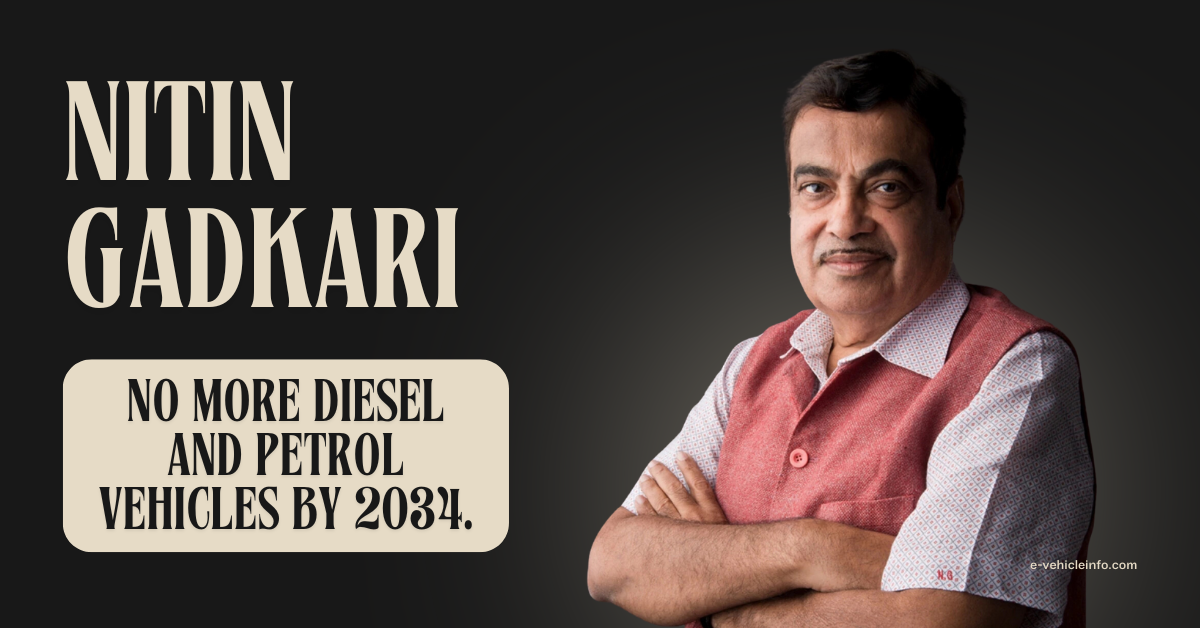5/5 – (1 vote)


In a bold vision for India’s automotive sector, former Union Minister Nitin Gadkari has set an ambitious goal to eliminate petrol and diesel vehicles within the next decade. Speaking at a recent public rally, Gadkari underscored the government’s commitment to cleaner and more sustainable transportation solutions. The Former Union Minister says,
“I want to eliminate diesel and petrol vehicles from this country within 10 years. Nowadays, electric scooters, cars, and buses have emerged as viable options. While you spend Rs 100 on diesel, they consume electricity worth Rs 4.”
Past Statements and New Timelines
Previously, Gadkari has spoken about the need to phase out internal combustion engine (ICE) vehicles but has not provided a specific timeline. Now, he has committed to a ten-year plan to remove over 36 crore petrol and diesel vehicles from Indian roads. He also aims to reduce the GST on hybrid vehicles as part of this comprehensive strategy.
Vision and Feasibility
When asked about the feasibility of completely phasing out petrol and diesel vehicles, Gadkari expressed strong confidence. He remarked, “One hundred per cent. It is difficult but not impossible. This is my vision,” reflecting his determination and optimism in achieving this ambitious transformation for India’s automotive landscape.
IS INDIA REALLY EV-READY?
Over the past few years, India has seen a notable rise in the adoption of electric vehicles. Despite this growing interest in electric cars and two-wheelers, the country’s EV charging infrastructure remains inadequate for widespread use. The high upfront cost of electric vehicles further complicates the situation, making hybrids an appealing alternative. Additionally, the steep fuel prices for traditional internal combustion engine vehicles contribute to the attractiveness of hybrid models.
Several factors continue to hinder India’s full readiness for electric vehicle adoption. Although government policies are supportive, they have yet to create a comprehensive and effective EV ecosystem. Furthermore, many leading automotive manufacturers have not fully committed to the EV sector, resulting in limited and often expensive EV options. Range anxiety persists due to the scarcity of charging stations, and sales data indicate a preference for hybrid vehicles as a more practical interim solution. Moreover, reliability issues, performance issues, accident issues with some EVs discourage potential buyers to fully adopting an EV.
Although India is progressing in the EV Industry, it still needs to emphasize the need for more advancements and infrastructure development to make India truly prepared for a broader EV transition.
- SEO Powered Content & PR Distribution. Get Amplified Today.
- PlatoData.Network Vertical Generative Ai. Empower Yourself. Access Here.
- PlatoAiStream. Web3 Intelligence. Knowledge Amplified. Access Here.
- PlatoESG. Carbon, CleanTech, Energy, Environment, Solar, Waste Management. Access Here.
- PlatoHealth. Biotech and Clinical Trials Intelligence. Access Here.
- Source: https://e-vehicleinfo.com/no-more-petrol-and-diesel-vehicle-in-india-by-2034-nitin-gadkari/
